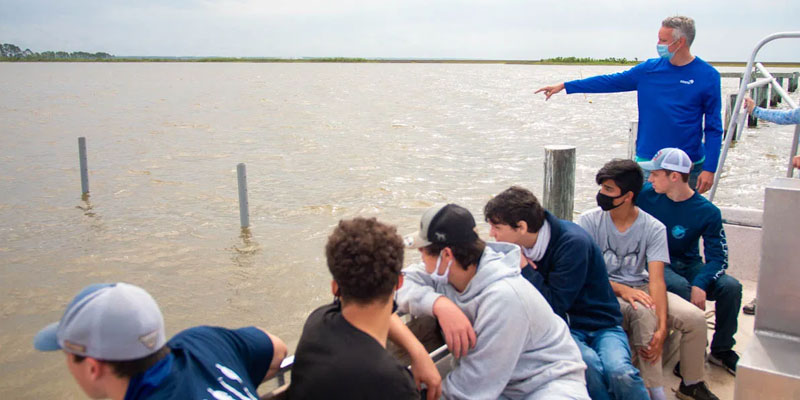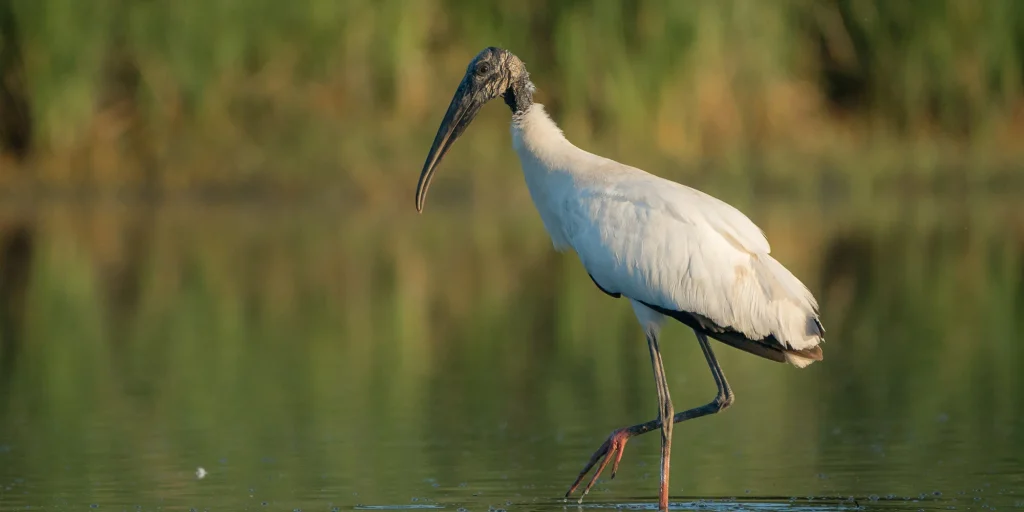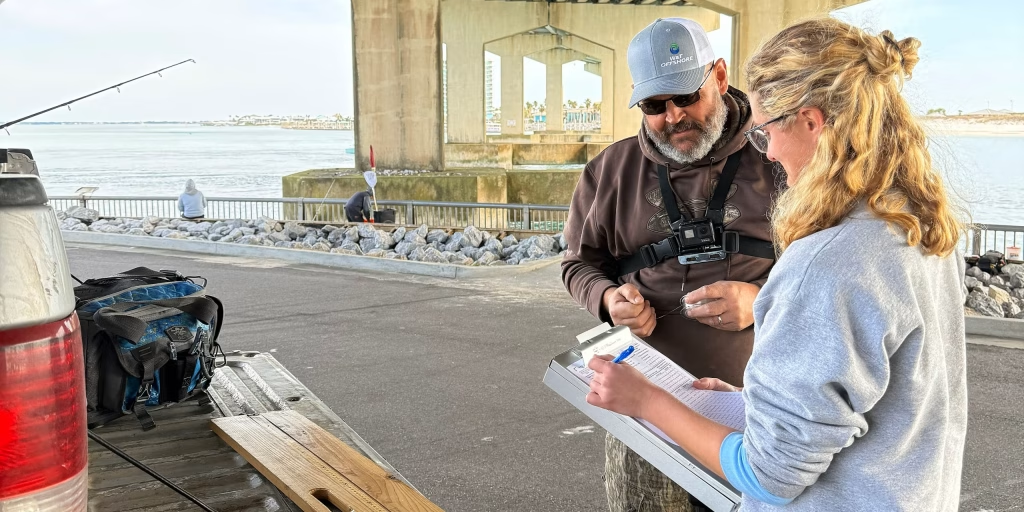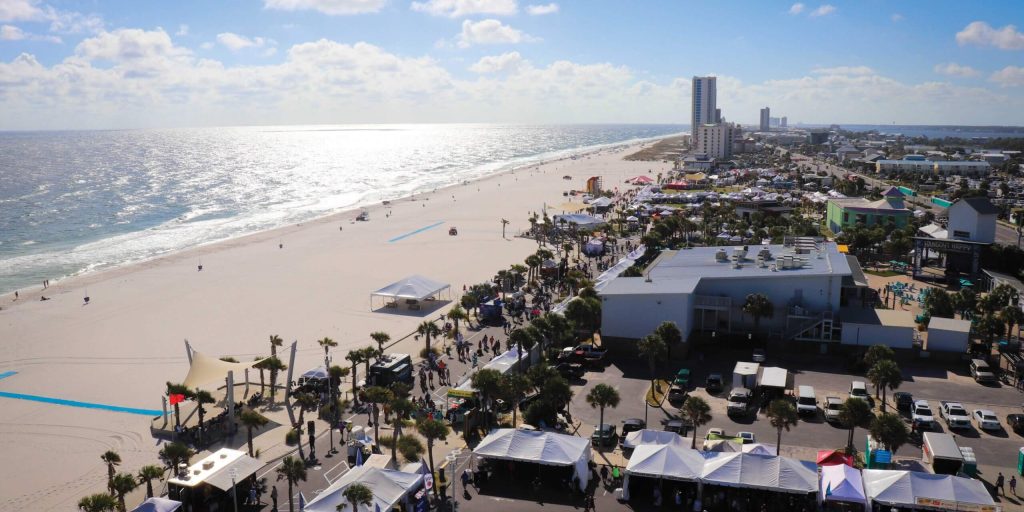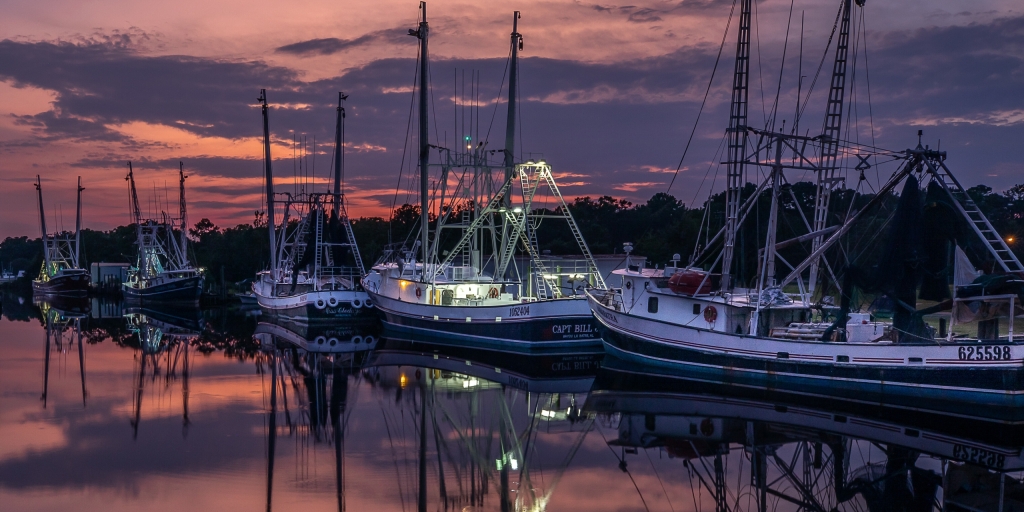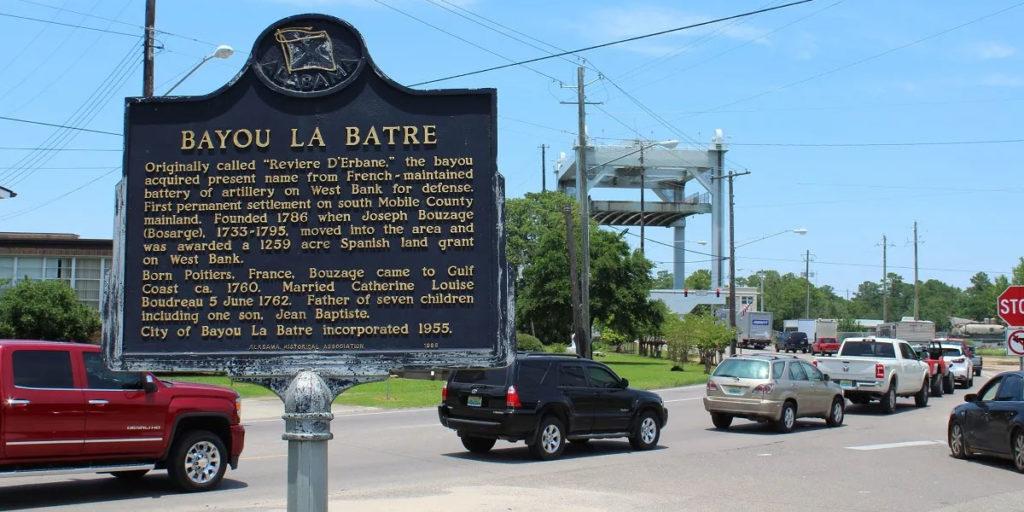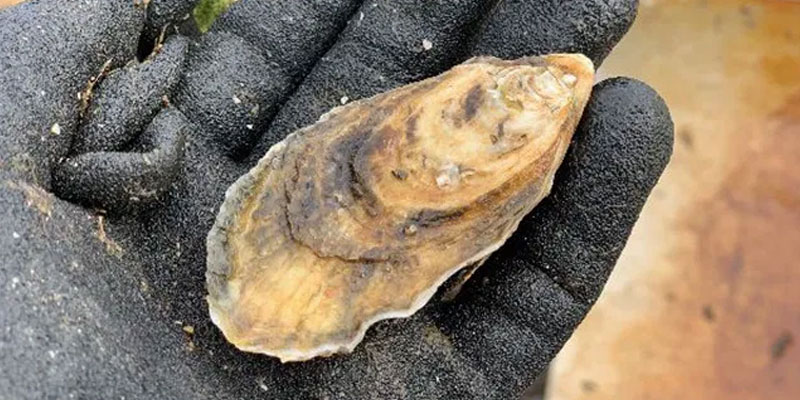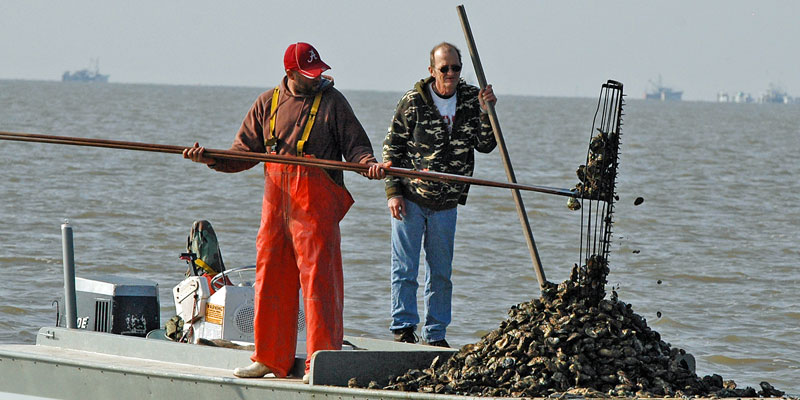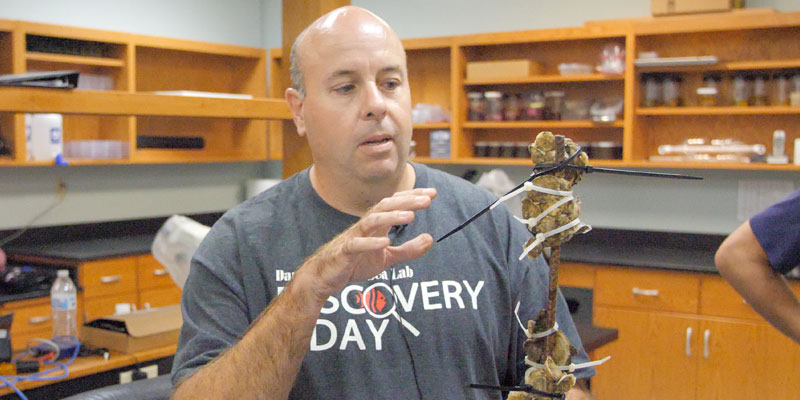For students enrolled in the Bryant Oyster Academy at Bayou La Batre’s Alma Bryant High School, science is fun.
“We’re teaching students how to grow oysters,” said aquaculture teacher Charles Baker. “They’re learning the whole process of putting out the long line system and then hanging baskets where you grow oysters to either market size or a size where they will be resilient enough to make it when you place them on a reef.”
Bryant Oyster Academy teaches students valuable career skills from Alabama NewsCenter on Vimeo.
The Bryant Oyster Academy was started several years ago by Julian Stewart. Baker picked up the project after Stewart retired.
“We’re trying to build on what he started,” Baker said. “I really want to reach as many different types of students, whether that’s students looking for a career on the water straight out of high school, preparing them so that they know what they are doing and they can go work on an oyster farm right out of high school, but also through the restoration side of things, getting them to learn the whole process: scientific method, testing hypotheses, measuring growth over time and setting up different experiments so if they want, they can go and have that on their resume going into a college.”
Baker’s current project for the academy involves creating an oyster farm in Sandy Bay, just around the corner from Lightning Point. He has partnered with the Auburn University Shellfish Lab and Dauphin Island Sea Lab and has received financial assistance through two grants: one from Gulf Coast RC&D to purchase a boat and materials to build a platform and two off-bottom oyster lines capable of growing up to 100,000 oysters at the oyster farm, and a second via the Students to Stewards grant from the Alabama Power Foundation to purchase safety equipment and pay for maintenance on the boat and trailer.
“We’re so grateful for the support we’ve received for this program,” Baker said. “We couldn’t do it without the support of groups like Alabama Power and Gulf Coast RC&D. So many people helping with this and we couldn’t do it without them.”
Baker said he ultimately wants students to graduate from the academy with hands-on experience growing oysters in three contexts: research, conservation and aquaculture.
“That ties into the whole idea of a living shoreline,” Baker said. “It’s been great so far getting kids interested in working down here on the water and preparing for possibly careers down here on the water.”
(Courtesy of Alabama NewsCenter)




